A mere two days after the US presidential election, the Duolingo English Test hosted a thought-provoking panel discussion in London on the geopolitical implications for international higher education. The event featured insights from an impressive roster of experts, including U.S. Congressman Seth Moulton; former British Ambassador to the U.S. Sir David Manning; Spokesperson for Republicans Overseas UK Jennifer Ewing; Head of Development in Asia for Imperial College London Richard Everitt; Georgetown University’s Kathryn Timlin; and Chief Social Purpose Officer for University of the Arts London Polly Mackenzie.
Moderated by ABC News’s James Longman, the panel provided a timely exploration of how shifts in U.S. politics may influence the movement of international students globally.

📸 Visit our gallery to see more photos of the event!
A changed political landscape and its impact on education
Panelists noted that while traditional policy issues like the economy and immigration dominated voter concerns, this election also signified deeper cultural divides. Congressman Seth Moulton remarked that the results reflected “a cultural election,” highlighting frustrations among Americans who feel disconnected from traditional political parties.
These tensions are particularly relevant for international students, whose opportunities in the U.S. are closely tied to government immigration and education policies. Moulton emphasized that changes in the political landscape could lead to shifts in policies governing student visas, residency options, and immigration. With the Republican party holding significant influence, education policies could swing in a new direction, impacting both student flows into the U.S. and the overall appeal of American universities.
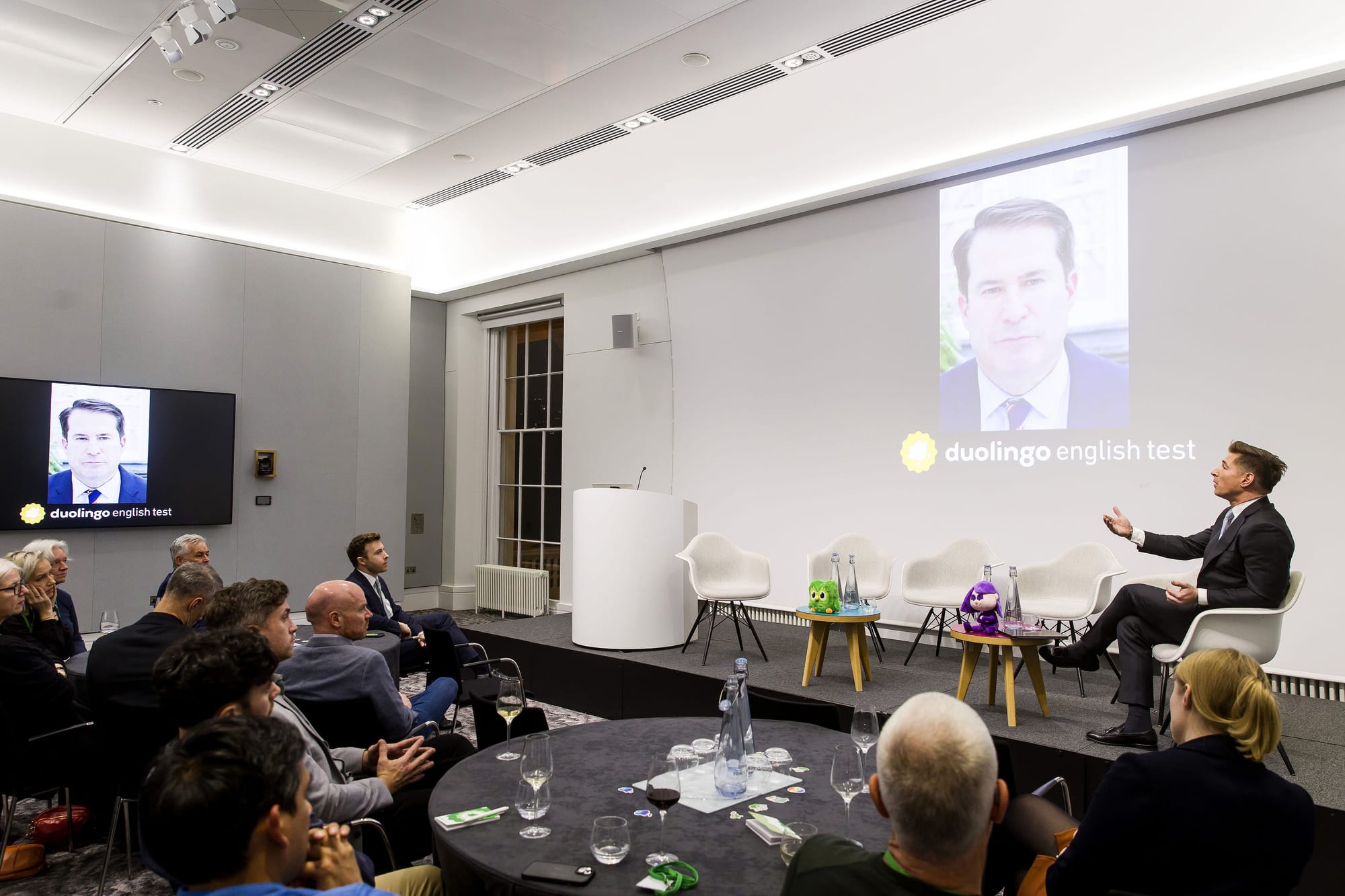
Global reactions and concerns from international allies
Sir David Manning spoke on how U.S. political shifts could affect international alliances, particularly with NATO and European countries. For international students coming from regions affected by U.S. foreign policy, the uncertainty may influence their study decisions. Manning explained that allies depend on predictability in U.S. policy, and instability could lead to geopolitical adjustments—an important consideration for students coming from Europe, Asia, and beyond.
Polly Mackenzie, Chief Social Purpose Officer at the University of the Arts London, echoed these sentiments, pointing out that Europe might be heading toward a “post-American future.” This shift, she suggested, could influence the educational landscape as European institutions consider how best to attract and retain international students in a changing global environment.
The role of AI in admissions and international student mobility
AI and technology were also a focal point of discussion, particularly in light of growing demands for AI-based tools in higher education admissions. Panelists noted the importance of AI-driven solutions like the Duolingo English Test, which provide accessible and affordable English proficiency testing for students worldwide. Georgetown University’s Kathryn Timlin shared how the DET has been instrumental in helping refugee and disadvantaged students access higher education. With AI-enabled, accessible testing options, universities can reach more diverse applicants, especially those in conflict zones or economically unstable regions.
Timlin underscored the DET’s role as a “game changer” in enabling these students to demonstrate their language proficiency without needing to travel, which has proven essential for students in war-torn areas like Ukraine.
New challenges in international student recruitment
The U.S. remains a top destination for international students, but shifts in political leadership raise questions about how immigration policies may evolve. Kathryn Timlin emphasized that Georgetown hasn’t seen a decline in applications, though she voiced concerns about the most vulnerable students—those from countries in crisis or conflict. Policies around visas, tuition affordability, and pathways to employment will continue to shape the global landscape for student mobility, and institutions may face new challenges in recruiting students if immigration policies become more restrictive.
Trump’s recent mention of potential Green Cards for international students adds a new angle to the conversation. While the idea has raised hopes among some in higher education, panelists noted that details and potential policy shifts remain to be seen. “Immigration policy has a huge influence on whether students choose the U.S. over other destinations,” said Richard Everitt of Imperial College London, emphasizing that visa options like Green Cards could significantly impact international students’ choices.
Polly Mackenzie pointed out that in the UK, higher education institutions depend heavily on international tuition fees, and any restrictions on student visas or increased tuition costs could disrupt this system. Richard Everitt added that trends in international student recruitment are largely shaped by foreign policy and post-study work options, both of which could shift based on U.S. and UK immigration policy changes.
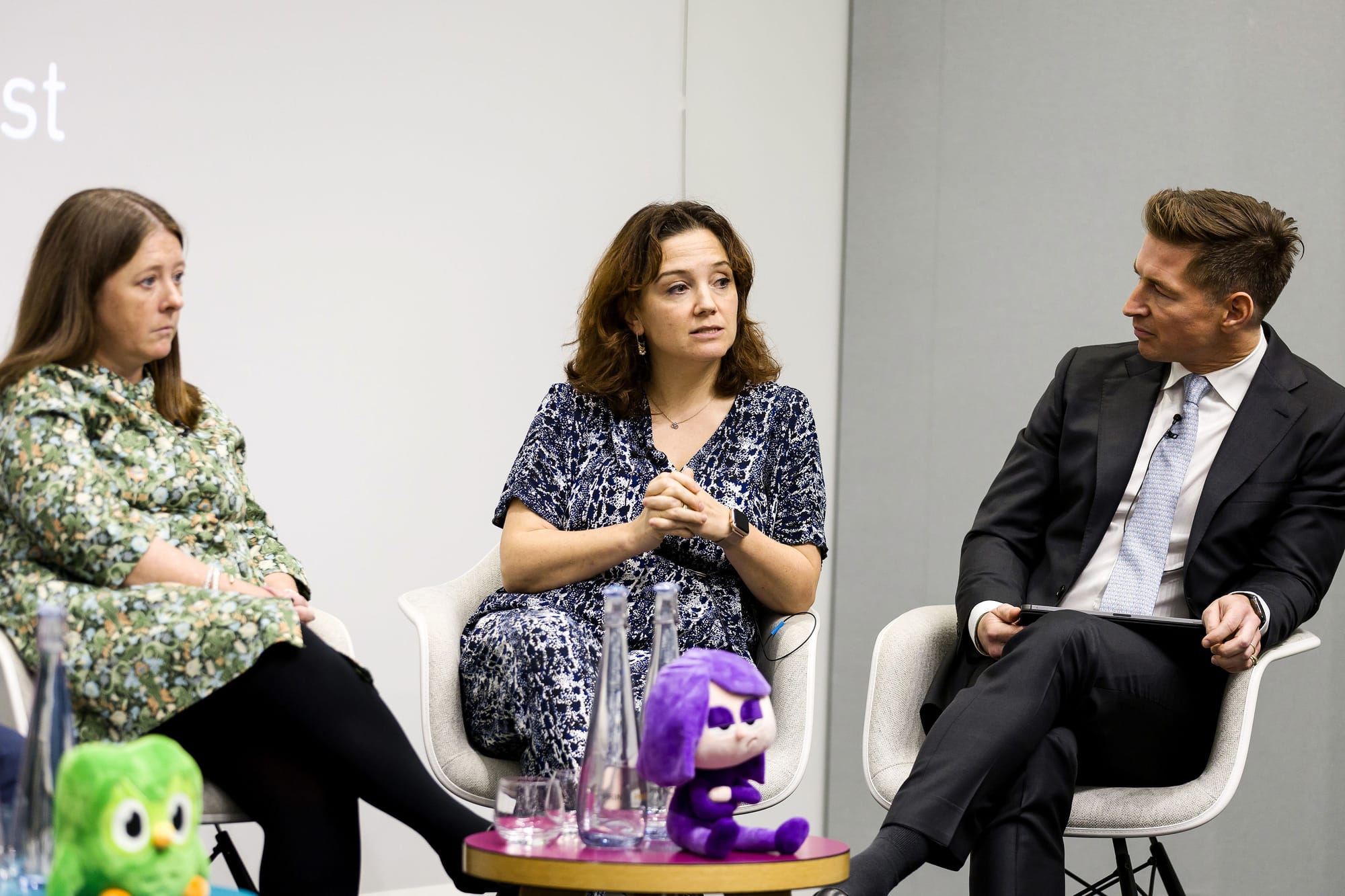
Embracing diverse educational pathways
Jennifer Ewing highlighted the growing emphasis on trade schools and vocational education in the U.S., noting that many students are now considering alternatives to traditional four-year degrees. This shift reflects a broader recognition of the value of diverse educational pathways, including community colleges and technical programs, which offer practical skills and can be more accessible to international students. Ewing's insights underscore the importance of providing a range of educational options to meet the varied needs of students worldwide.
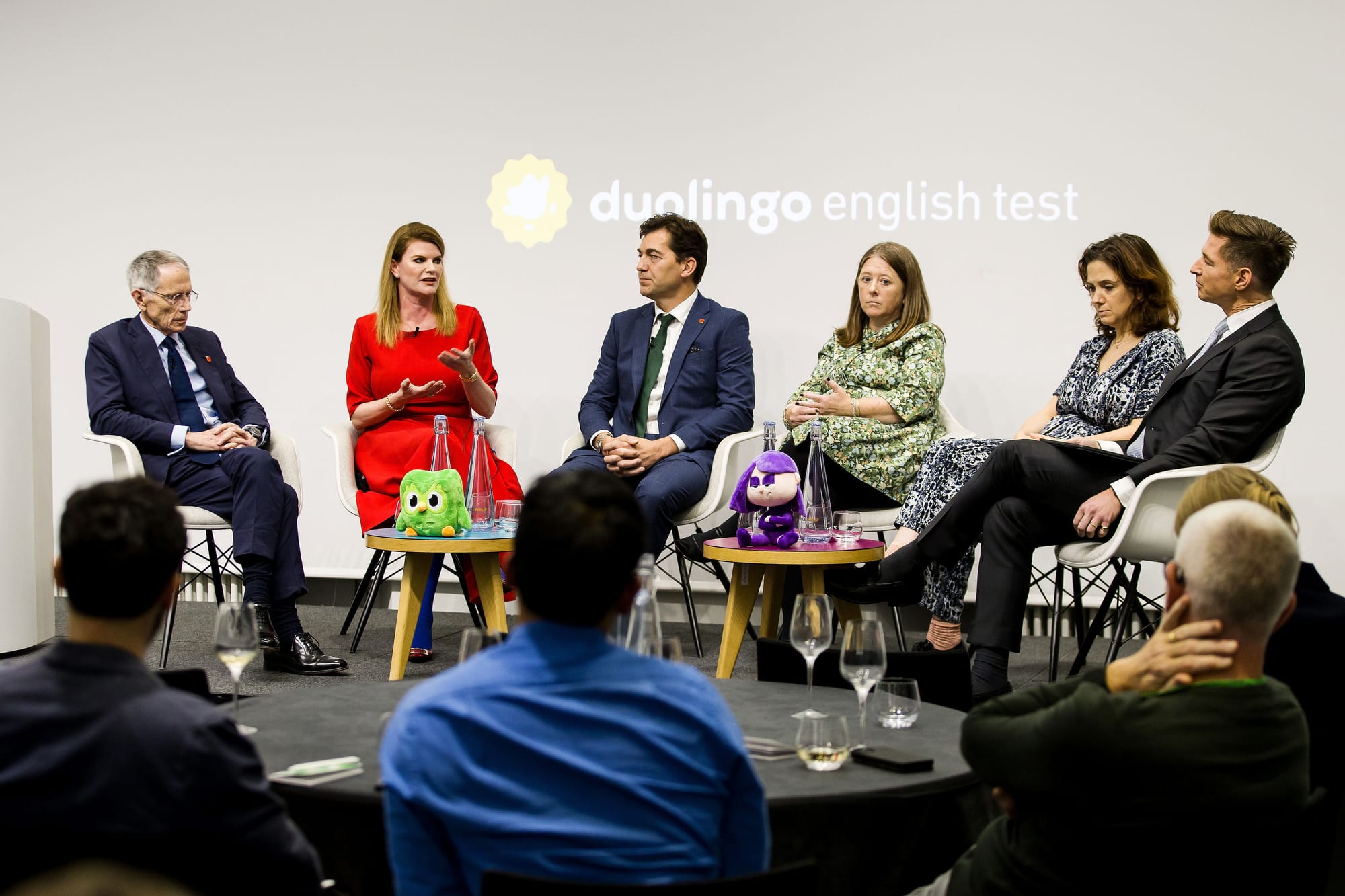
Reflections on the future: a global perspective on higher education
The panel concluded with reflections on how these geopolitical dynamics could shape the future of higher education for years to come. As Congressman Moulton observed, the American education system has historically attracted students globally, but recent political changes underscore the need for institutions to adapt. Whether universities in the U.S. and the UK can maintain their international appeal will depend on their ability to provide accessible pathways, a stable policy environment, and meaningful support for students from diverse backgrounds.
Jen Dewar, Senior Director at the Duolingo English Test, noted the ongoing volatility in global politics and its potential impact on students’ choices. “We’re all trying to prepare for what’s next,” she said, emphasizing the importance of international collaboration in creating secure and welcoming environments for students worldwide.
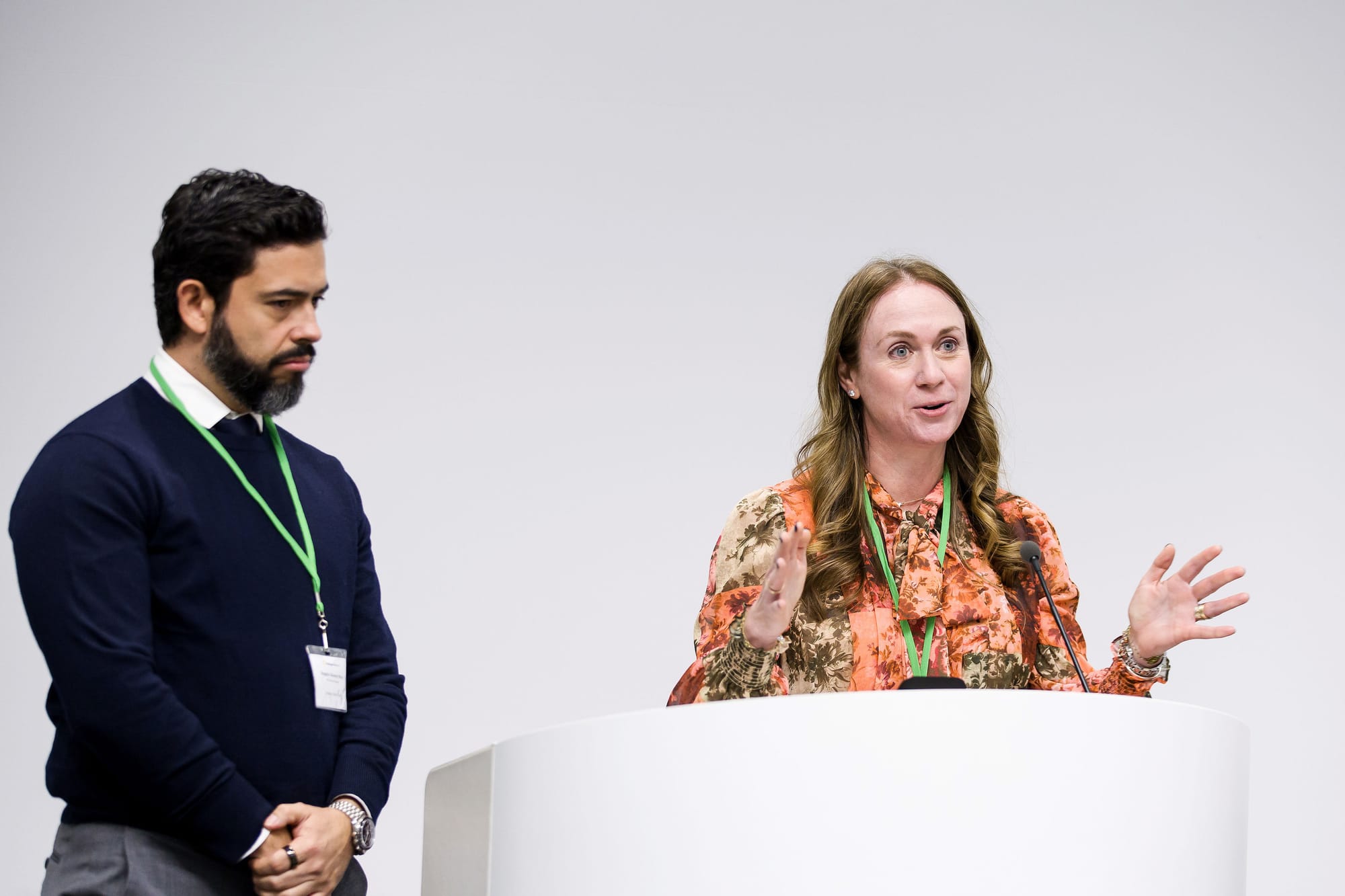
The takeaway: navigating a new era for international education
The panel underscored the importance of international collaboration in education, the value of AI-driven testing tools like the DET, and the complex ways in which geopolitical shifts influence international student mobility. As universities adapt to these changes, they face the challenge of balancing accessibility, affordability, and inclusivity to attract students from around the world.
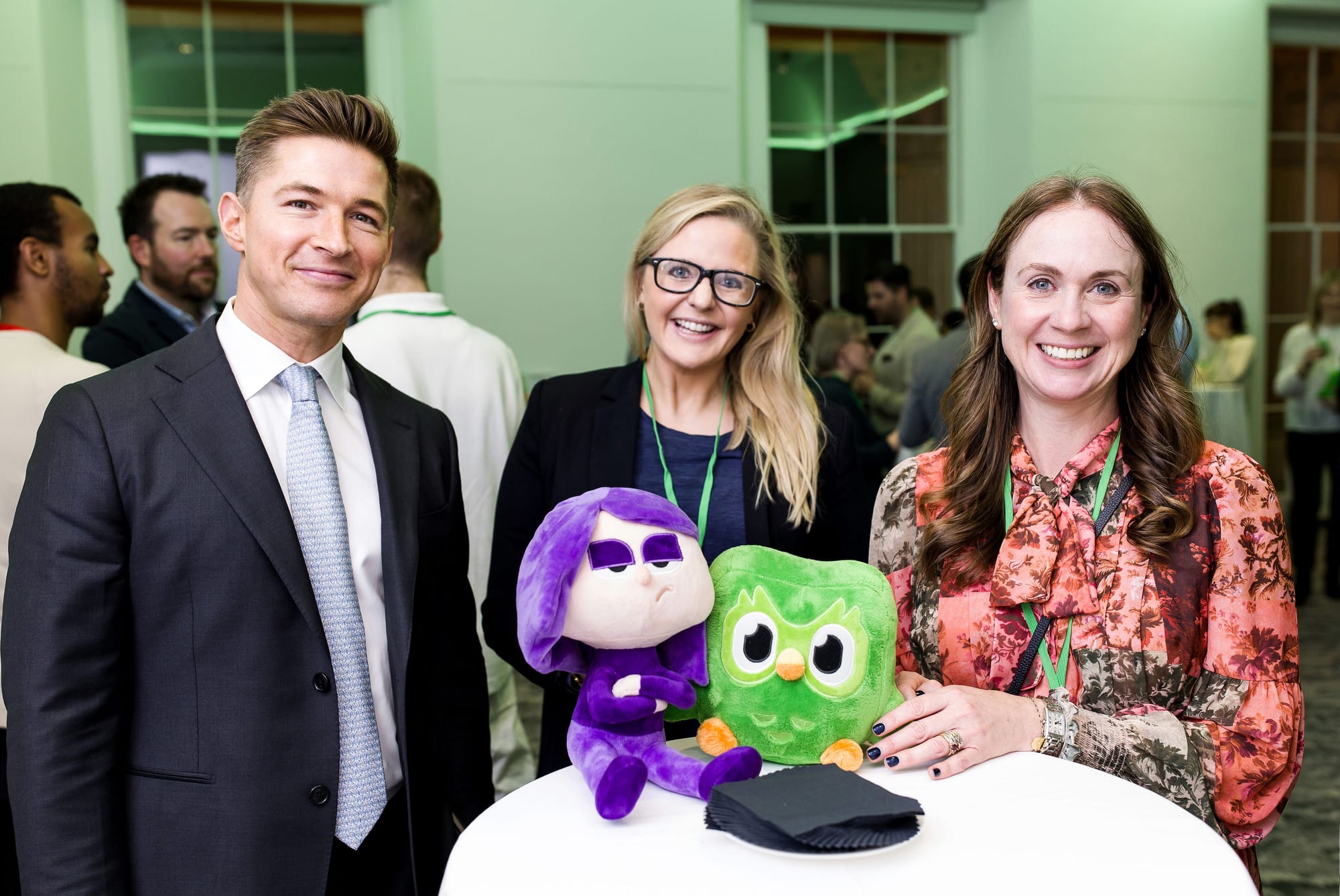
📸 Visit our gallery to see more photos of the event!
